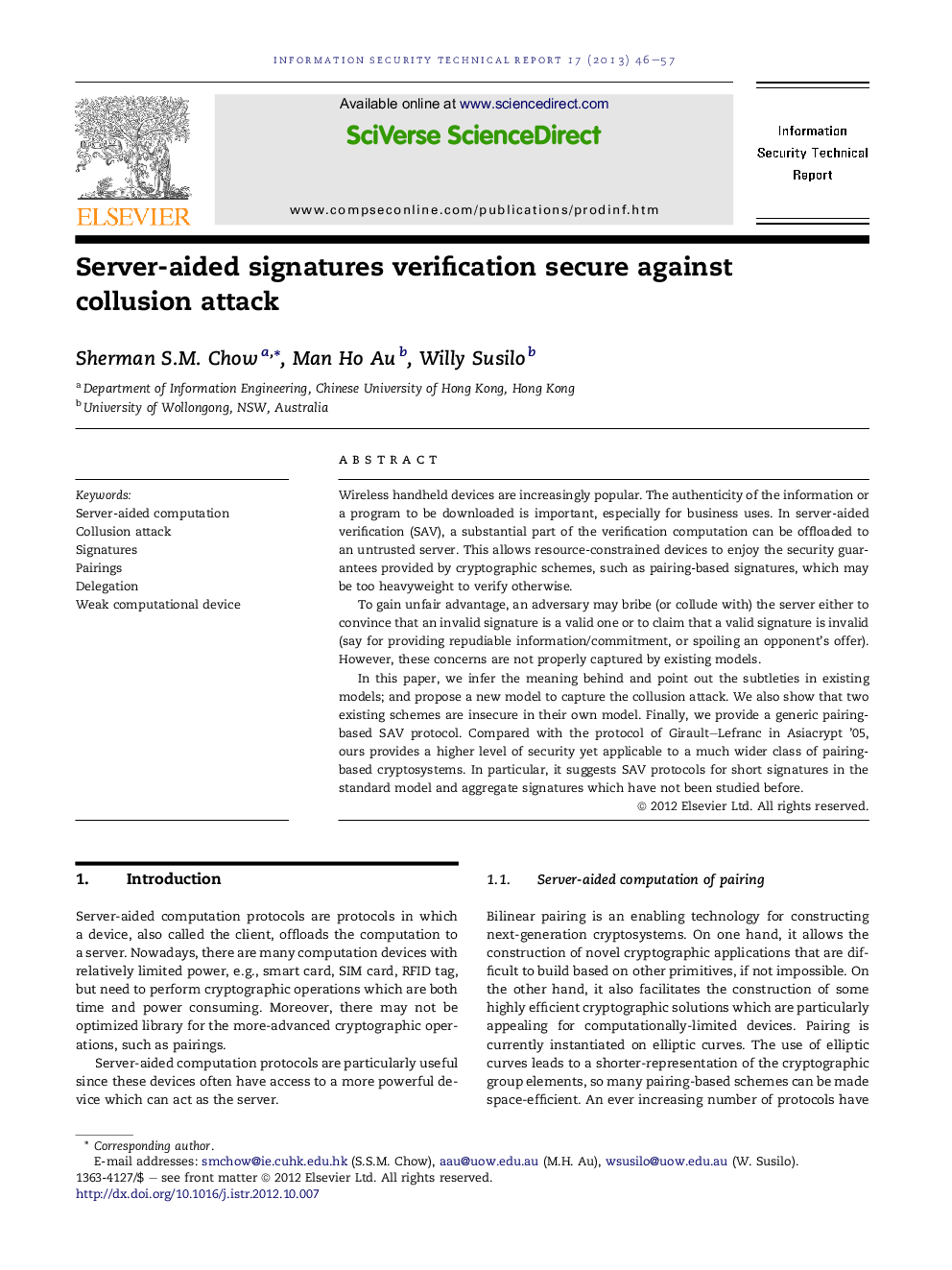| کد مقاله | کد نشریه | سال انتشار | مقاله انگلیسی | نسخه تمام متن |
|---|---|---|---|---|
| 458385 | 696148 | 2013 | 12 صفحه PDF | دانلود رایگان |

Wireless handheld devices are increasingly popular. The authenticity of the information or a program to be downloaded is important, especially for business uses. In server-aided verification (SAV), a substantial part of the verification computation can be offloaded to an untrusted server. This allows resource-constrained devices to enjoy the security guarantees provided by cryptographic schemes, such as pairing-based signatures, which may be too heavyweight to verify otherwise.To gain unfair advantage, an adversary may bribe (or collude with) the server either to convince that an invalid signature is a valid one or to claim that a valid signature is invalid (say for providing repudiable information/commitment, or spoiling an opponent's offer). However, these concerns are not properly captured by existing models.In this paper, we infer the meaning behind and point out the subtleties in existing models; and propose a new model to capture the collusion attack. We also show that two existing schemes are insecure in their own model. Finally, we provide a generic pairing-based SAV protocol. Compared with the protocol of Girault–Lefranc in Asiacrypt '05, ours provides a higher level of security yet applicable to a much wider class of pairing-based cryptosystems. In particular, it suggests SAV protocols for short signatures in the standard model and aggregate signatures which have not been studied before.
Journal: Information Security Technical Report - Volume 17, Issue 3, February 2013, Pages 46–57